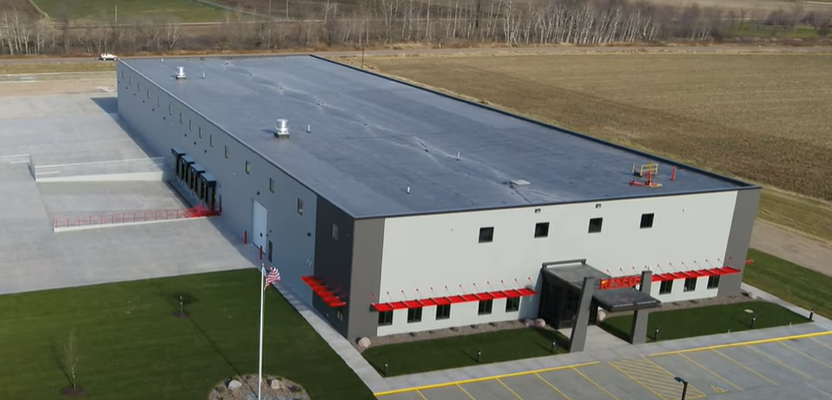
RESCO News
Electric Vehicle Q&A: A Cooperative’s Perspective
March 28, 2022
Editor’s note: RESCO spoke with Nate Boettcher, president and CEO of Pierce Pepin Cooperative, for his insights on the electric vehicle sector. Boettcher is also the president of CHARGE EV, LLC, a national electric vehicle (EV) charging brand powered by electric cooperatives that also invests in EV-focused companies. CHARGE affiliates are part of a growing brand that leads a nationwide cooperation among cooperatives’ effort (the sixth Cooperative Principle) to help promote and educate members about EVs.
Question: What does the current EV sector look like, from a cooperative’s perspective? What opportunities exist for cooperatives to be a leader in helping expand and grow this sector?
Answer: The broader market for EVs looks very positive. Just about every major automobile manufacturer has committed to moving their fleet to electric. From a cooperative’s perspective, the ability for manufacturers to deliver cars and trucks that look like vehicles that people know and love today will be a big key. That’s what was so exciting about the Ford Lightning announcement: it looks like an F-150, and its price point is competitive.
Cooperatives can be leaders by continuing to educate the market, which includes more than its members. There is an entire ecosystem that needs to exist to support EVs, including car dealers, electricians, home builders, fleet managers, etc. Cooperatives need to think about how they educate each of these audiences relative to their role in the broader ecosystem.
Q: What challenges does the EV sector face? What has been the impact of supply chain disruptions, inflation, rising gas prices, and power grid/infrastructure concerns?
A: The EV sector has been slowed by availability, including the availability of computer chips and raw materials to make the batteries needed for production. Without a doubt, if the supply changes and materials become readily available, there is a large demand of drivers. The war in Ukraine has politicized EVs and, unfortunately, it’s not helped the momentum of electric vehicles. Hopefully, individuals and companies recognize the overall value of an EV beyond the choice between electricity and gas.
EVs are filled with innovation, and the driver experience is greatly enhanced. The grid challenges are not a large issue today, but depending on adoption, cooperatives will need to be aware of this in the future. Cooperatives should plan for having multiple electric vehicles charging on residential chargers. This load may be 20 to 30 kW. The ability to monitor and control these chargers is important.
Cooperatives should be looking to invest in technology now that allows them to be involved with EV drivers. It will be much easier if cooperatives have a plan as members are adopting them, rather than trying to catch up after the fact.
Q: CHARGE EV continues to grow in number of affiliates. How is this benefitting the EV industry, electric cooperatives, and current/future EV drivers?
A: The concept of CHARGE is really easy for cooperatives to grasp and to see the value and benefits of joining. CHARGE was specifically created to create a national EV charging network powered by cooperatives. The benefit of having access to content, information, training, etc., is helping to drive cooperative programs. We see CHARGE as a way to collaborate, organize, and promote under a single umbrella, which will be important for cooperatives who compete for EV driver attention from other providers. We are closing in on 100 cooperatives who have joined CHARGE, which is over 10%. We have a ways to go, but as more and more people join, the value will continue to go up, because your neighboring cooperatives will be able to share their partnership and value they get from being part of CHARGE.
Q: What are your predictions/anticipations for the EV sector for the remainder of 2022 and beyond?
A: My personal opinion is that 2022 is going to be a slow year for electric vehicles. The demand is high, but vehicles are in short supply. The broader economy is still trying to figure out the effects of 2021 being hampered by COVID, high inflation, material, and supply chain issues. Manufacturers are struggling to get vehicles produced.
I expect 2023 to be a much better year overall for EV growth and adoption, barring any big changes with the current environment. I do think 2022 will be a great year for electrification in other non-traditional passenger vehicle markets, like electric bikes, quads/rangers, snowmobiles, etc. I just saw a company starting to deliver an all-electric snowmobile with a range of 65 miles. E-bikes are becoming better and better.
There is also a ton of movement happening in the large truck/delivery vehicle sphere. What we are seeing is a electrification across all sectors of transportation, and it’s really interesting to see the innovation that’s occurring.
Lastly, the infrastructure bill will have a heavy impact on EVs. I think the market is really starting to gear up for how they participate in this federal investment.





